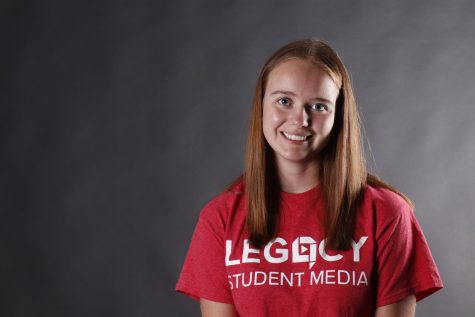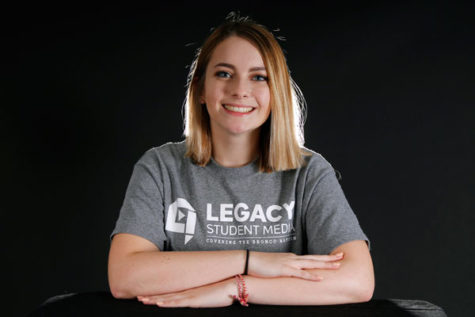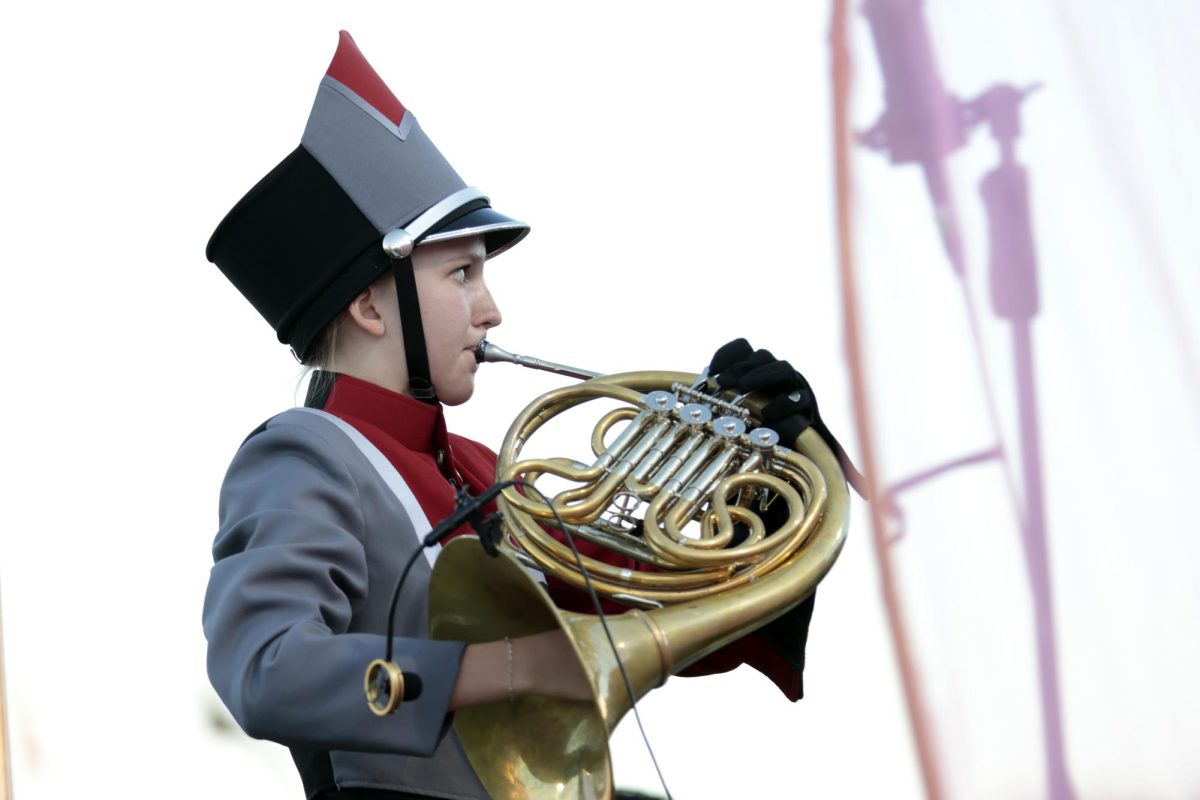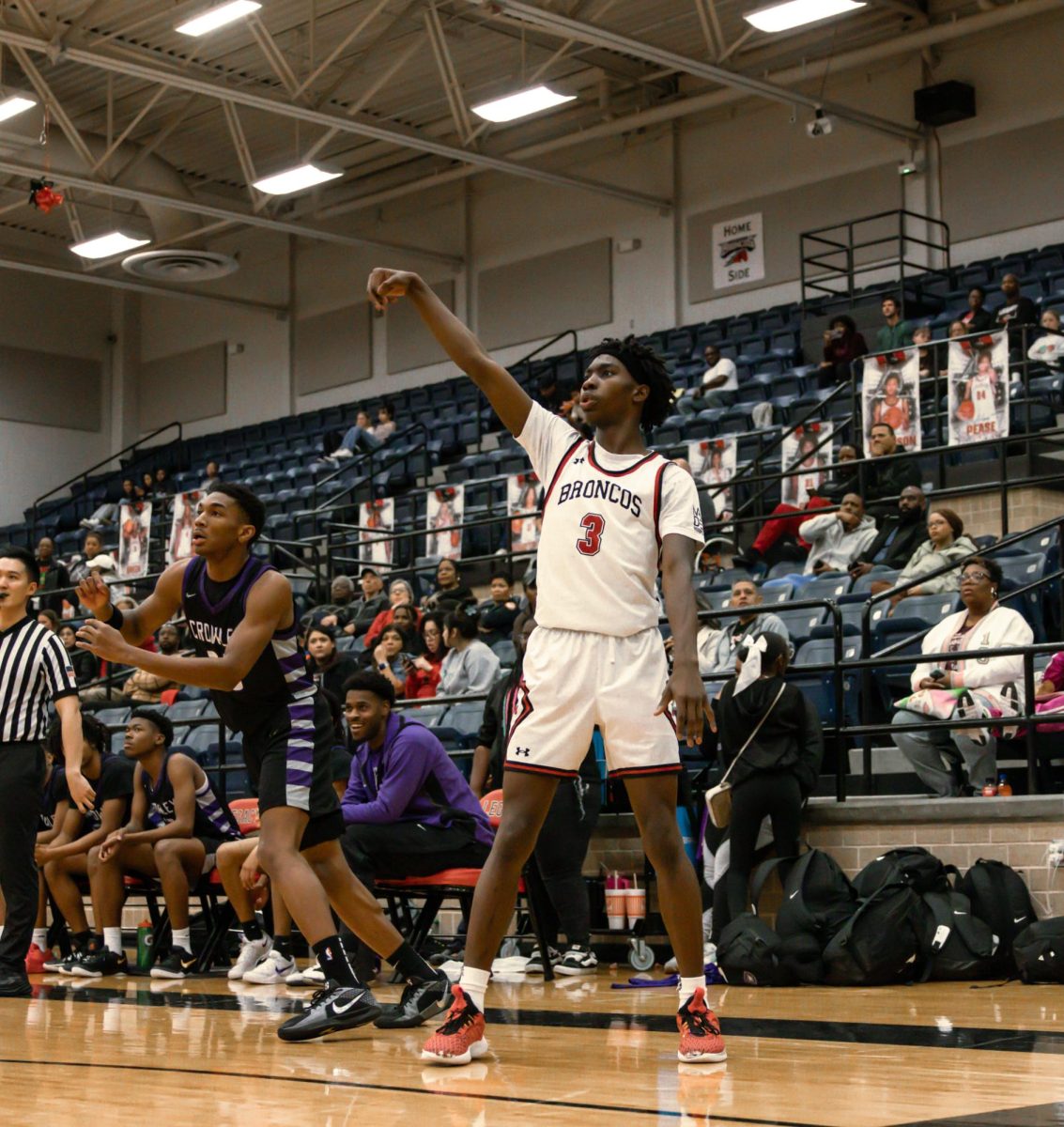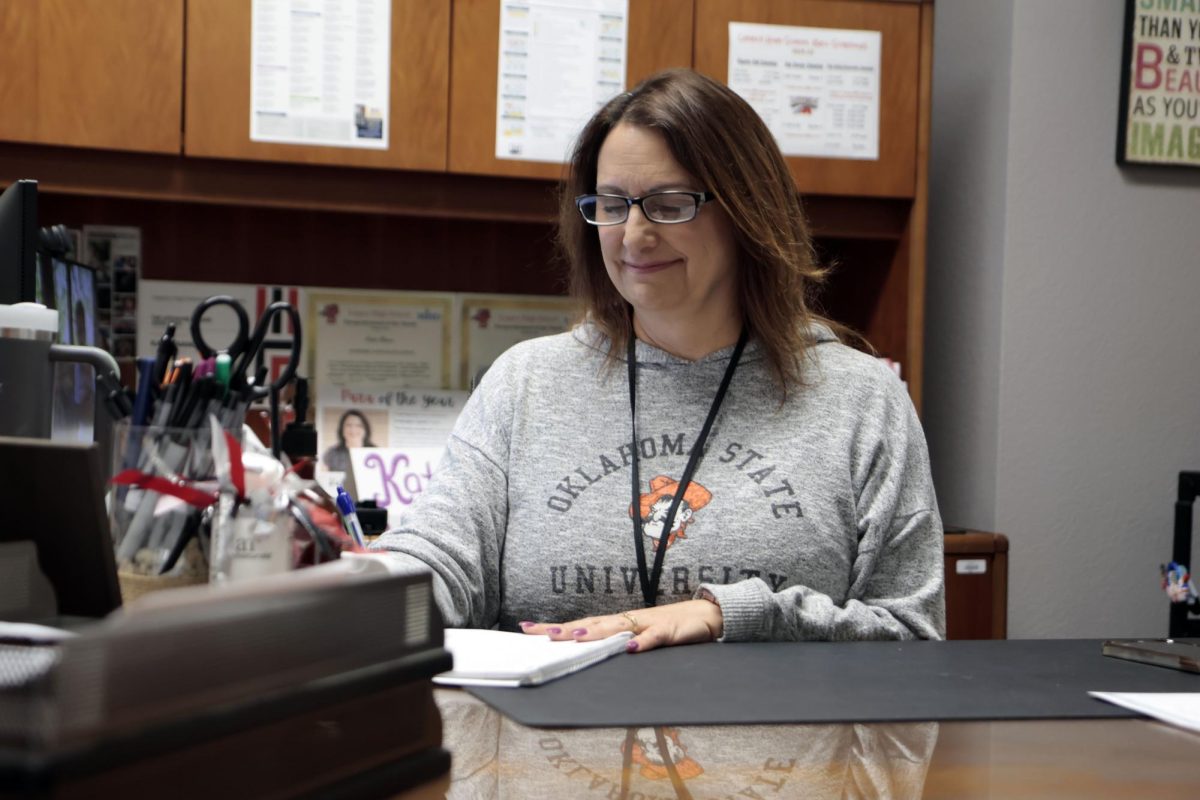
Three adults sit in desks at the back of a bare classroom. Exhausted, senior Natalie Pixler walks in. The adults nod, indicating she can begin. She pushes back the wrinkles in her black pantsuit and gray blouse. She inhales the stale air, and begins her speech.
Pixler competes in Original Oratory: a speech and debate event in which the speaker gives a memorized speech about a chosen topic. During her first season, she placed first on multiple occasions and had the opportunity to qualify for nationals in the spring of that year. This year, she competes in Original Oratory and is the speech captain for the debate team.
“There is something so beautiful that happens when someone is given the tools to adequately
explain their concepts and views of the world,” Pixler said. “That’s what speech does for people.”
Pixler became the first debater at Legacy to participate in Original Oratory. With help from her dad and Internet resources, she wrote an award-winning speech about women’s equality and sex trafficking.
“She has laid the foundation for Original Oratory,” Debate Coach Howard Ritz said. “It is because of her initiative on taking on this contest that we have a program for Original Oratory.”
At her first tournament in the Fall of 2017, Pixler placed first. She felt validated after her success in her first competition. She also enjoyed the opportunity to share her ideas, so she competed in Original Oratory for the rest of the season.
“As I began to speak in my first round, I felt immensely fulfilled,” Pixler said. “Equality for women is my passion. Raising awareness about sex trafficking within the US is something I see as a purpose for me right now,”
At the end of the season, in the spring of 2018, Pixler competed at Lovejoy High School. If Pixler ranked in the top two, she would qualify for nationals. She made it to the final round.
“[The finals round] was my best round of the day. I believe I did quite well,” Pixler said. “It felt clear and concise.”
When the ballots came back later that day, she ranked third overall. Two of her three judges ranked her first, but the second judge ranked her last.
“[I was] completely and utterly stunned,” Pixler said. “The range of ranks was so vast that I couldn’t believe the ballots were correct.”
Pixler questioned each judge about the reasons for their rankings. When she asked the judge who ranked her last about his decision, he made sexist comments, expressed how he felt she had attacked him and claimed she should take partial blame for sex trafficking.
“I was angry,” Pixler said. “My heart was set on nationals and I couldn’t achieve that dream because of a nasty judge.”
When Pixler spoke to the other two judges on the panel, they said the judge who had given her last place had made sexist and racist comments all day.
“I felt a sense of injustice,” Pixler said. “My fate rest in a judge’s personal opinion rather than my merit.”
After Pixler received her results, she called her dad who speaks for a profession. Despite her anger, she shifted her focus to move past the situation.
“I discovered how much I really cared about my passion — no matter if people agree,” Pixler said. “It made me realize that I will make a lot of people uncomfortable when I share the reality of sex trafficking, but I can’t allow that to shift my course.
After the competition, Pixler focused all of her efforts on the Rotary Speech Competition, where she placed first and earned $1,300 in scholarship.
“Inspiring, informing and speaking up for the voiceless when I deliver a speech is why I do it,” Pixler said. “The reward is people joining me in the taking action against trafficking.”



